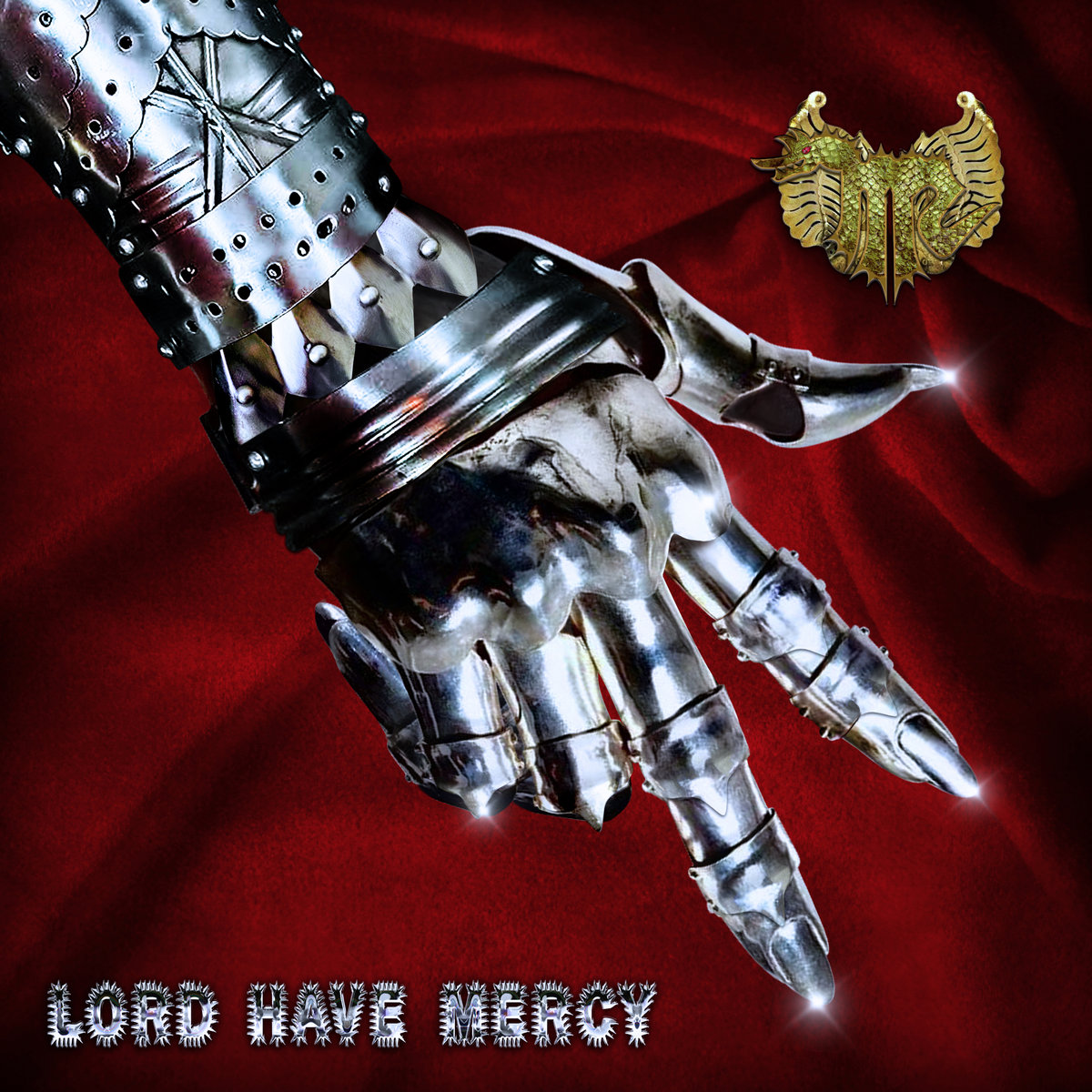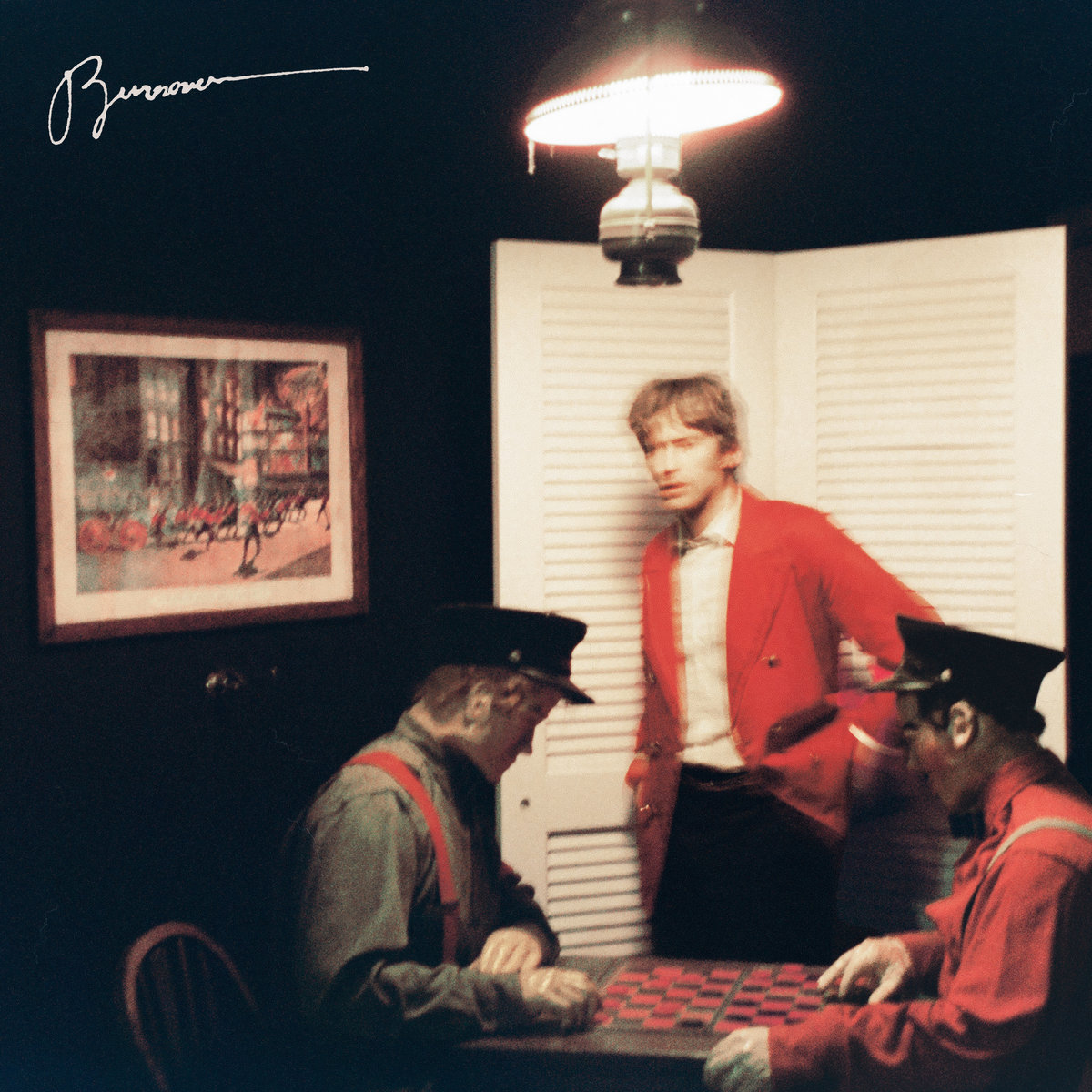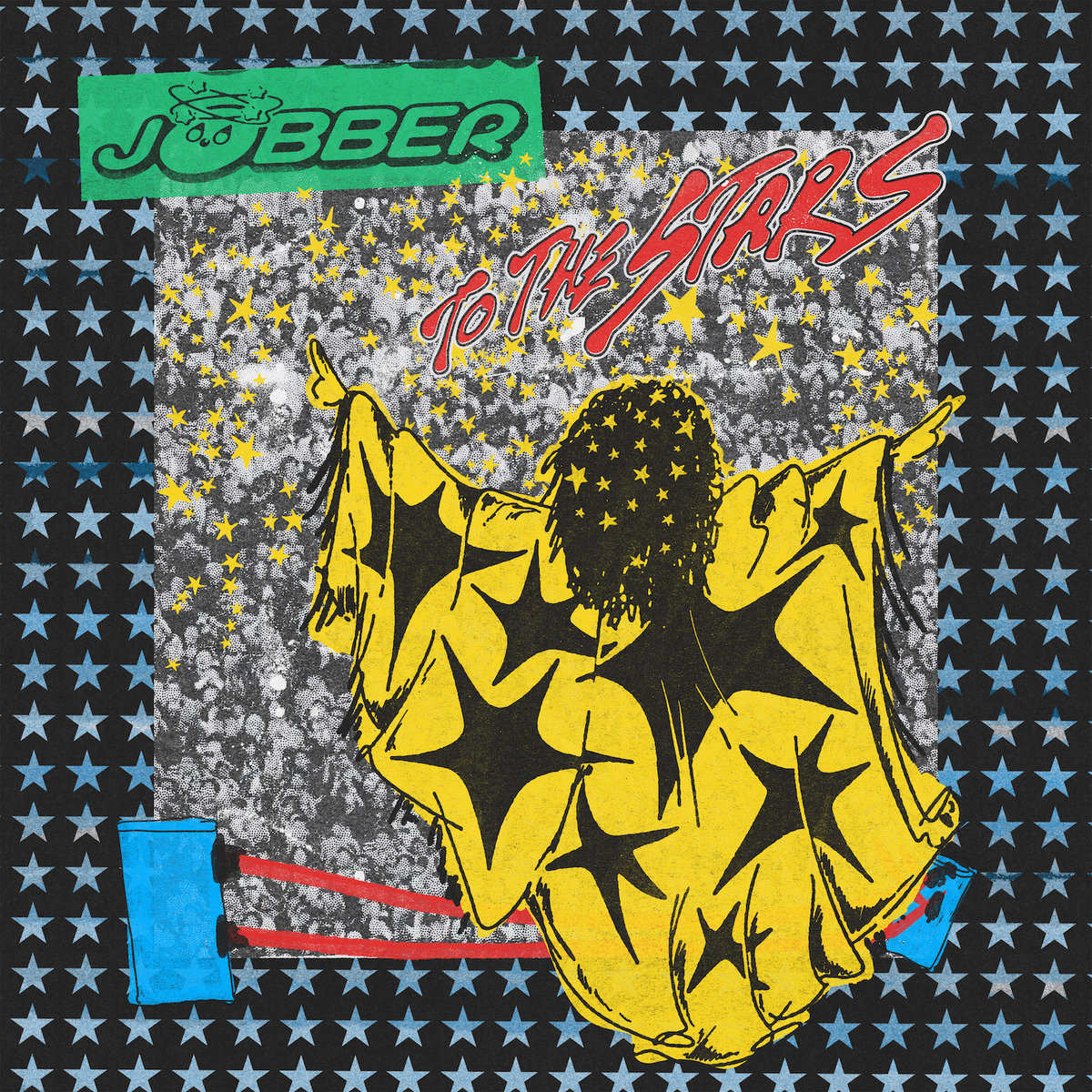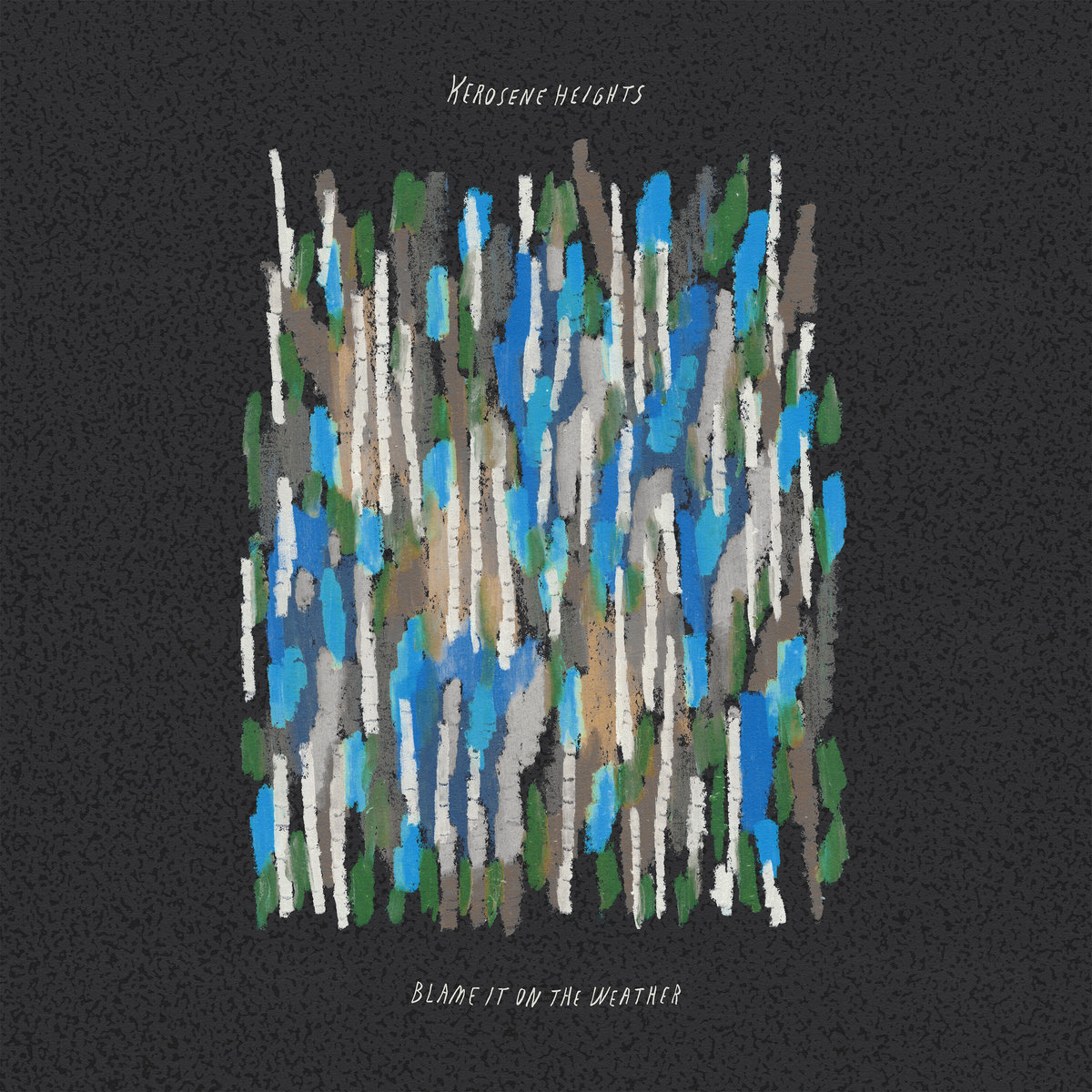The Relatable Suffering Of Greet Death
/When most people think of Flint, Michigan, one thing typically pops to mind: the Flint Water Crisis. They know it’s a depressed town in the midwest that has uncovered larger systemic issues. A city that has been failed by its own government, whose people have been left for dead because of extreme income inequality and poverty. I’ve been to Flint once, maybe twice, and I can confirm that there’s a reason it’s become symbolic for all those things. It’s no fault of Flint; they are a symptom of capitalism. A casualty of corporate greed sucking the life out of the towns that once aided to capitalistic gain, now drained and discarded.
Greet Death is a shoegaze band from Flint, Michigan, and they embody this same type of deep-seated betrayal, bitterness, and sorrow in their music. But like any other citizen of Flint, Greet Death aren’t content to just give up and lie down; they are going to continue, they are going to create, and they are going to persevere. Not only that, they are going to thrive and live to tell the story.
The type of profound misery found in Greet Death’s discography isn’t unique. There are songs of heartbreak and hard decisions found in everything from emo to Americana. What makes Greet Death different is how they translate that sense of lumbering existential dread into their instrumentals. The type of heaviness that the band experiences in life is carried over into their production, their lyrics, and their song structures. This isn’t some over-the-top stoner rock heaviness where the bass is fuzzed-out because it sounds good to a college freshman doing bong rips; in Greet Death’s case, heaviness is the only way to do these stories justice.
The group combines this distorted, shoegazey instrumental bed with the unique vocal stylings of bassist Sam Boyhtari and guitarist Logan Gaval. Helmed primarily by Boyhtari, his soft, higher-pitched croon provide a nice counterpoint to the heaviness of the band’s instrumentals. It humanizes the tracks in a way that makes the dense fog feel slightly more bearable. Meanwhile, Gaval lends a bit of a clearer more ‘poppy’ sensibility to the band… poppy only in the sense that, when compared to everything else, the songs that Gaval sings are downright catchy by comparison.
Take all of these elements and place them over the sway of Jim Versluis’ consistently impressive drumming, and you have Greet Death. Together the band has released two albums, a 7", and an Audiotree live, all amounting to exactly two hours of dense, smoky, riff-filled music that captures a sense of dread unlike anything I’ve ever heard.
I use the word ‘dread,’ but even now, after multiple re-reads and edit passes, don’t think I can find anything better. Greet Death’s music is at once sinister and foreboding yet comforting and ritualistic. There’s a sense of something cataclysmically evil lurking just on the edge of your peripheral vision, yet your eyes can only fixate on what’s right in front of you. The songs are dark, moody, and crushing, but they also possess this sort of magic that keeps you coming back. They aren’t catchy in a singalong way, but they embed themselves somewhere deep within your psyche and keep you coming back for more.
Anyone familiar with the shoegaze and dream-pop genres will likely know exactly what I’m talking about. The same way that Slowdive is peaceful yet existential. The same way that Hum is warm yet morbid. The same way that Mazzy Star is relaxing yet sorrowful. It’s that mix of contradicting feelings that both captivate and confuse.
Greet Death is part of a new class of shoegaze acts integrating unique stylistic elements in order to flesh out corners of the genre that were previously unexplored. Bands like Holy Fawn, Gleemer, Narrow Head, and Clearbody, all of whom are taking cues from different genres and melding them into the shoegaze sound to increasingly-impressive effect. Greet Death is taking more inspiration from stoner rock and post-rock, two genres very near and dear to my heart, so it would follow that the music from the Flint natives clicks with my brain particularly well.
When I first heard Dixieland, the band’s debut, I’ll admit I wasn’t all that impressed. I knew the band was part of the Michigan DIY scene, one heavily populated with dime-a-dozen emo bands, so honestly, I was probably just surprised to not hear guitar tapping within the first few seconds. My turning point on the band came in 2019 when they released New Hell and it made its way onto my album of the year list within the space of about one month.
Throughout 2020 New Hell has been an album I’ve returned to on an almost weekly, sometimes daily basis. It has become a comfort album, one that I can rely on and call upon at any time. I can come into New Hell in any emotional or mental state and emerge on the other side completely changed.
What first drew me to New Hell were the other, more familiar sounds that I heard in the band. There was a folksy Alex G-like twang on “Let It Die,” there was stoner rock riffage on tracks like “Strain,” and these elements proved familiar enough for me to give the band a second chance. From there, I began to fall in love with characteristics unique to the record, the molten guitar solo on “You’re Gonna Hate What You’ve Done,” the deliciously fuzzed-out tone on “Strange Days,” and the hypnotic lyricism on “Entertainment.” The band caps it all off with an epic ten-minute closing track that explains the album’s namesake and wades the listener off with an instrumental bed that twists and winds to its inevitable conclusion. In the final minutes of the album, the band pairs Boyhtari’s singing with Gaval’s screams, mirroring each other over a towering riff that’s nothing short of soul-destroying. It’s one of the best closing tracks I’ve ever heard and wraps the album up in such a compelling, emotional way that’s both thought-provoking and motivating.
I soon realized the album’s power. Every time I hit play on the record, I began to recognize the almost-tangible effects it had on my surroundings. No matter what environment I listened to the album in, New Hell was a record that poured out of the speakers and eventually grew to permeate every corner of whatever room I found myself in. The songs creaked, rumbled, and reverberated, bouncing around the walls of my brain and leaving me emotionally-drained in their wake. Now, this might not sound fun, but this is exactly what I want from my music sometimes.
After dozens of relistens to New Hell, I ventured back into Dixieland and discovered that, unexpectedly, the band’s debut carries the same heft as their sophomore effort. There’s a different wrapper on them, but the nine songs on Dixieland hit the exact same fold of my brain as the nine found on New Hell. Songs like “Bow” use the same lyrical device as “Entertainment,” repeating one phrase over and over again until it morphs from poetic to hypnotic. Meanwhile, “Black Hole Jesus Christ” is probably the most dynamic track on the album, gradually shifting from reverb-laden soundscapes and ballad-like deliveries to an ascending post-rock instrumental that beckons you to join it over at the edge of the universe. Best of all, both “The Waste” and “Cumbersome” are hulking, monstrous seven-minute tracks that act as tentpoles for their respective sides of the album. These songs gradually carve their riffs into your head and leave you to wade through the emotional wreckage once they’re over.
After multiple listens of Dixieland, I found myself reevaluating the two records as part of a larger oeuvre. I began to believe that they are actually connected in some way. Obviously, they’ve come from the same minds, but perhaps there’s a deeper connective tissue between these two records than I previously realized.
After my many, many, many relistens to New Hell, I've crafted a defined opinion on the album, more explicitly on its thesis. Greet Death don’t strike me as the type to over-explain their songs. In their Audiotree session, Gaval explains the surprisingly nonchalant origin of the album’s title, specifically, a shitty retail job where things were always going wrong, which led his co-worker to joke that ‘every day is a new hell.’ While that anecdote explains the origins of the album’s namesake, it’s a far cry from explaining what the term means to the band or even within the context of the record’s nine songs. This is all a long-winded way of me saying that everything from here on out is solely my interpretation of Greet Death’s music and what the band is trying to say.
Pieter Bruegel the Elder - Netherlandish Proverbs (1559)
The cover of New Hell reminds me of Pieter Bruegel the Elder’s work, specifically Netherlandish Proverbs and The Triumph of Death. I know between me using the word ‘oeuvre’ and name-dropping 16th-century renaissance painters, your Pretentious Douchebag Alarm is probably going off loud as hell, but I promise all of this will make sense soon.
These paintings (as recently popularized by the Fleet Foxes and It Came At Night, respectively) are mid-sized hyper-detailed oil paintings that depict, in a word, chaos. Netherlandish Proverbs is meant to offer literal illustrations of Dutch-language proverbs and idioms; these include people on fire, someone slaughtering a sheep, and (what appears to be) a twisted form of inter-species fellatio à la that one shot from The Shining. Meanwhile, The Triumph of Death is a more brutal and straightforward painting meant to literally depict hell on earth. In this painting, the skies are filled with smoke and adopt an orange hue. Armies of undead skeletons are funneling the last few surviving humans into some sort of torture chamber while others mutilate, brutalize, and otherwise torment the corpses of the recently deceased. These paintings are both brutal in different ways. For example, one is a quaint rustic town scene that becomes more twisted and disturbing the longer you look at it. The other is just outright violent and spiritually unquieting.
Pieter Bruegel the Elder - The Triumph of Death (1562)
To me, the cover to New Hell created by Liam Rush achieves the same effect. It’s a twisted, violent, disorienting mix of human bodies and demon forms. The humans are either curled up helpless or screaming in agony as sadistic demons rip hearts from chests and cleave bodies in half. There are skeletons, serpents, fire, and fangs. It’s a detailed, ornate, gold-tinted depiction of literal hell, much like The Triumph of Death. Still, there are telltale signs of the earth we know scattered throughout the carnage; a cop car on fire, a radio tower, a factory topped with smokestacks. These are all references to lyrics within the album but also serve as remnants of the world we know hidden beneath the more immediate layer of damnation.
While there is some degree of interpretive flexibility within the record, for the most part, it feels like the band is taking this name and applying it more loosely. The “New Hell” they talk about in the album is different for every listener. Sometimes it’s an emotional hell, sometimes it’s a physical hell, sometimes it’s literally just the biblical hell. At least that’s what I get from it, and that’s what makes New Hell an excellent record: these songs and their meanings, are different for everyone who listens to them.
By contrast, Dixieland takes many of these stylistic cues mentioned above but applies them to a more grounded environment. The songs are still lofty, lumbering, and even metaphorical at times, but they are firmly rooted in the band’s lived experience growing up in Flint. According to the Pitchfork review, Dixieland gets its name from a flea market in the band’s hometown. This is foundational in the album’s creation and the band’s observations of their surroundings, but it also acts as a stand-in for any number of abandoned midwest towns that have been left to rot by our government and society.
Dixieland is depicting a different type of hell, one that the band was born into, has lived through, and continues to exist in. It's a hyper-specific and grounded depiction of their environment; the music is merely the result of that environment, the band's best attempt at formulating the feelings of their world into a song.
That is why Greet Death appeals to me on such a deep level. Not only does the band borrow the sludgy tones and grandiose song structures of genres that I already love, but they depict a feeling and an emotion that I’ve only experienced while living in Detroit. They capture this sense of hopelessness, of abject sadness, of the oppressive indifference of reality, and they do it better than anyone I’ve ever heard.
In other words, New Hell is a metaphorical version of hell that can be interpreted as literal, while Dixieland depicts a literal type of misery and torment that feels biblical. They’re two sides to the same coin, both using varying degrees of interpretation and metaphor to pack their message in. Both albums use the same type of slow, brutal instrumentation to batter the listener with riff after riff, forcing them into understanding this type of sadness, first through sympathy on Dixieland, then later by empathy on New Hell. They are two records that work together towards a collective understanding of humanity, suffering, and divinity. The band is able to juxtapose these external elements of everyday sadness with a deeply-understood internal sorrow, and I feel like I have a better understanding of the world as a result.
PHOTO: Kris Herrmann














